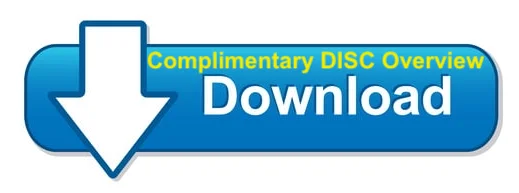Top 10 Coaching Tips

After the last few unpredictable years, how ready are you—and all the managers in your organization—to thrive in a changed world? Now more than ever, as many teams start toward a post-pandemic work plan, attracting and keeping good talent will depend on how well managers in an organization lead/coach people.
A recent article in Psychology Today indicated that organizations intent on promoting good mental health at work should focus on building better management skills. If organizations want to rebuild a thriving culture, they'll need to support their managers in leading their people better than the competition does. Managers have an impact on team engagement, talent retention, and productivity. While the use of Artificial Intelligence is growing, anyone who manages people should understand the importance of Behavioural Intelligence for effective coaching. Below are 10 tips to help managers coach/lead their people to success with less stress.
1. Ensure you fully understand what coaching is.
Many managers make incorrect assumptions about coaching. It's important that a manager uses a clear and consistent coaching model and understands the "why" —to enhance staff engagement and performance—as they master the "how." While using a collaborative questioning dialogue model of engagement, the manager should be able to distinguish between 'bossing', coaching, counseling, training, and therapy. Coaching seeks to engage for commitment vs. manage for compliance.
2. Check your perspective on people.
A manager who sees people's potential is far better at coaching them towards it. A manager that judges people based on past and current performance, or believes that people are inherently limited, will not make a strong effort to engage staff for optimal performance. An engaged, well-coached employee will out-perform one who is being mismanaged by a weak boss. People tend to quit their manager more than they do the company, so that mismanaged employee may already be out shopping their resumé.
3. Learn and practice an effective coaching model.
It's crucial that you start with a coaching model that is research-based and proven. That being said, there is a difference between taking a two-day seminar on coaching, and actually developing coaching skills. The course is an event, but the other is a process. Just as getting into (and staying in) shape requires consistent workouts (and not just one visit to the "fitness bootcamp" class), becoming a great coach isn't a quick fix. After acquiring the coaching knowledge, it's important to engage in continuous application. Partner with an organization that offers ongoing follow-up options. (See Coaching the Coaches for more information on a proven, research-based model.)
4. Understand and value personality differences.
 When coaching staff, be aware that each person has different motivators and communication styles. Learn the styles of your team in order to adapt your communication to the listener for increased impact. If someone is slower to speak and respond, for example, allow them time to think and process rather than interrupting with 'helpful' suggestions. Effective coaching adapts to the unique style and needs of the person being coached. (learn about DISC here and get a free DISC overview download)
When coaching staff, be aware that each person has different motivators and communication styles. Learn the styles of your team in order to adapt your communication to the listener for increased impact. If someone is slower to speak and respond, for example, allow them time to think and process rather than interrupting with 'helpful' suggestions. Effective coaching adapts to the unique style and needs of the person being coached. (learn about DISC here and get a free DISC overview download)
5. Engage your boss.
With engagement at all levels of the organization, investment in a coaching culture will achieve greater traction and superior results. Sometimes a lack of engagement or support from senior management can be a real coaching roadblock. Present a case for the economic benefits of coaching, and make sure that they can see the ROI involved.
6. Prioritize your time—Stay focused.
Coaching can happen in different ways with different needs and circumstances. At times, there will be spontaneous mini-coaching opportunities that shouldn't be missed. Often we call this "laser coaching" in the moment. On other occasions, longer or more intensive coaching sessions are called for. Plan your coaching times and know when enough is enough. Keep the session focused on arriving at a solution within the time frame allowed—avoid endless verbalization about the problem, and coach to a resolution.
7. Stop putting out fires.
A manager who regularly steps in to solve the staff's problems isn't doing them (or himself) any favors. He's only training them to bring him the problems, rather than solving them. Coach your staff to develop their confidence and problem-solving ability. This alone will increase organizational efficiency. Sometimes the simple question, "What can you do about it?" will help to uncover a solution.
8. Seek regular feedback.
To support your continued growth, make sure that you get regular feedback. Awareness of where and how you are succeeding (or not) will assist you in making the changes you need for sustained improvement. This is an area where 360 Feedback is often helpful.
9. Listen, listen, listen.
One of the greatest skills a coach/manager must practice is active listening. Fully deploy active listening skills with an open mind in order to ask more effective questions of the coachee, and get to the heart of an issue to assist them in finding a solution.
(Hint—put communication devices away.)
10. Keep growing and developing.
The rate of change in the world today means that every year, more and more of what we've previously learned becomes obsolete. Keep current with the latest research and development in the field. A great way to multi-task is listen to leadership/coaching podcasts while commuting or on a stationary bike at the gym. Stay sharp in engaging your team for superior results. Remember "Organizations don't achieve results, people do."
In the Spirit of Growth...

Chuck Reynolds, Chief Team Officer—Excel Group
 | As Chief Team Officer @ XLTeamwork.com Chuck is a Creative business leader/writer/husband/dad/real estate investor. Passionate about leadership, faith, family, entrepreneurship, and helping organizations understand and leverage their talent. Visit www.XLTeamwork.com for more information. |
Connect with him at Chuck Reynolds
XLTeamwork.com
#Engagement #Teamwork #Coaching #Leadership #XLTeamwork #Management #XLTeamwork



